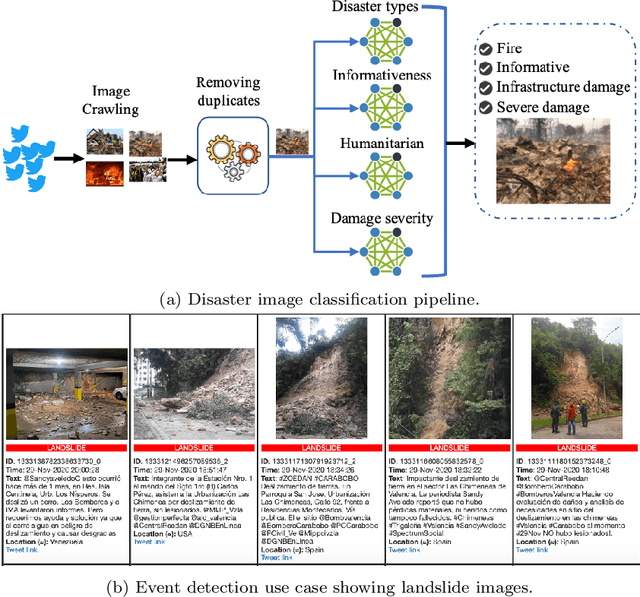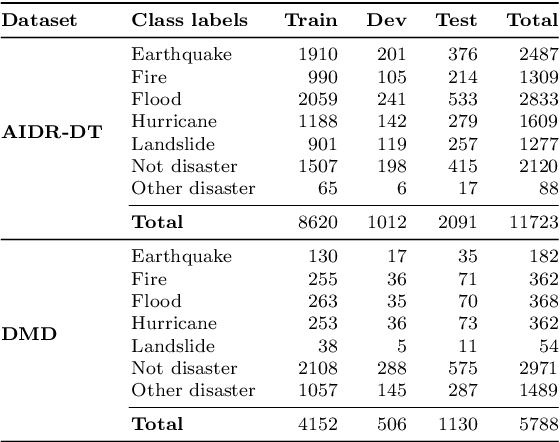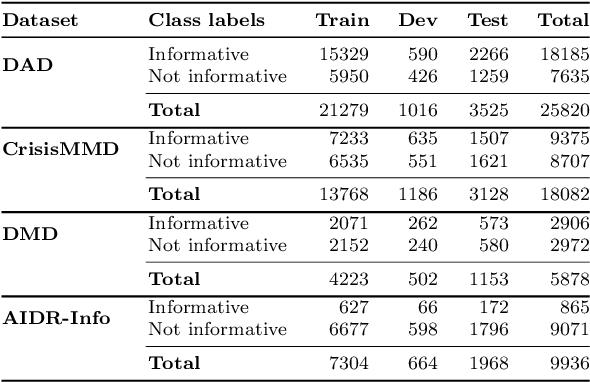Social Media Images Classification Models for Real-time Disaster Response
Paper and Code
Apr 09, 2021



Images shared on social media help crisis managers in terms of gaining situational awareness and assessing incurred damages, among other response tasks. As the volume and velocity of such content are really high, therefore, real-time image classification became an urgent need in order to take a faster response. Recent advances in computer vision and deep neural networks have enabled the development of models for real-time image classification for a number of tasks, including detecting crisis incidents, filtering irrelevant images, classifying images into specific humanitarian categories, and assessing the severity of the damage. For developing real-time robust models, it is necessary to understand the capability of the publicly available pretrained models for these tasks. In the current state-of-art of crisis informatics, it is under-explored. In this study, we address such limitations. We investigate ten different architectures for four different tasks using the largest publicly available datasets for these tasks. We also explore the data augmentation, semi-supervised techniques, and a multitask setup. In our extensive experiments, we achieve promising results.
 Add to Chrome
Add to Chrome Add to Firefox
Add to Firefox Add to Edge
Add to Edge